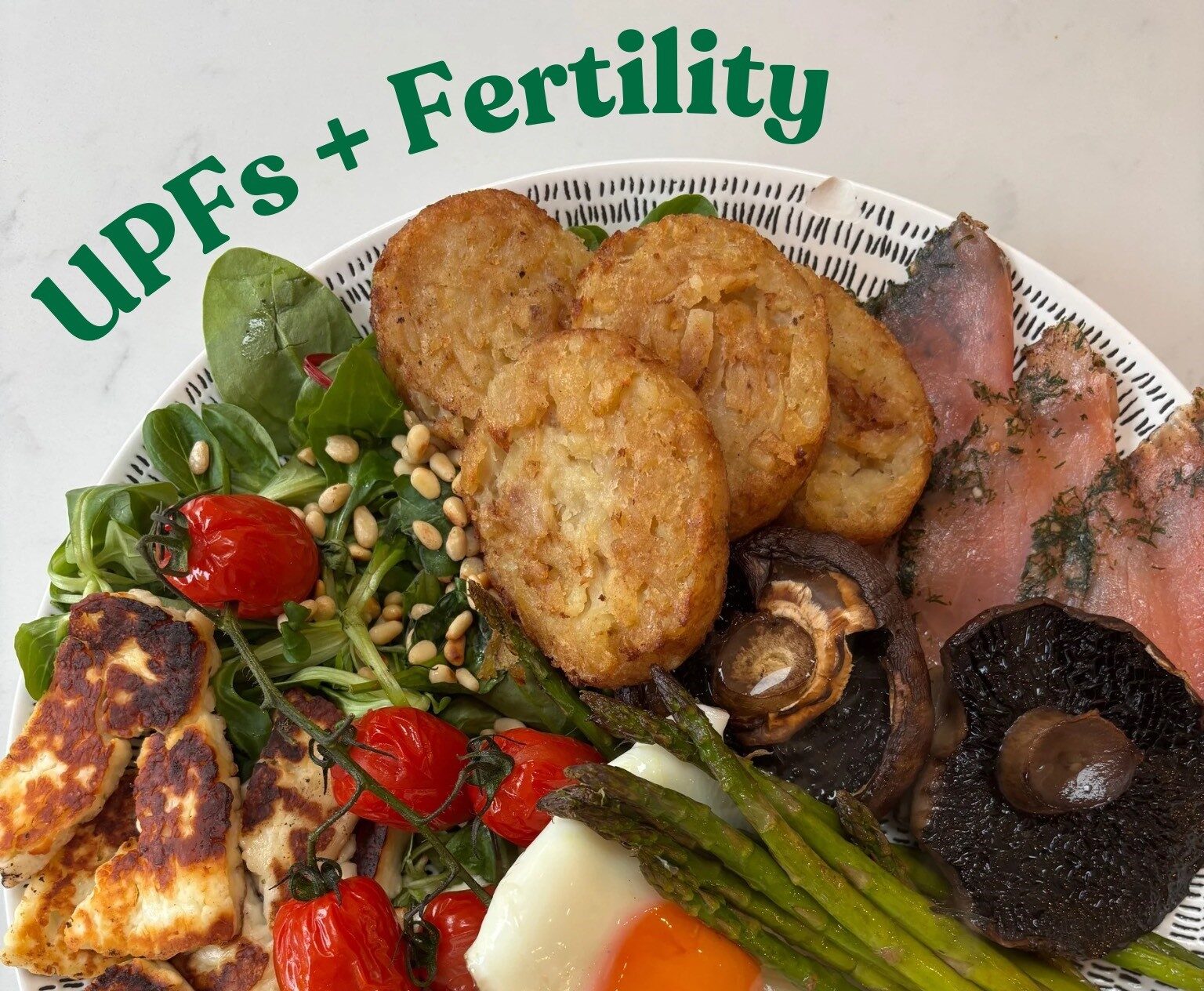20th October 2025
Fertility
Follow the latest news and developments in the world of fertility.
< View all our fertility news and posts


There has been a lot of noise in the social media world about Ultra Processed Foods (UPFs) recently. But is it just the next trending topic? Or do we genuinely need to be aware of the dangers UPFs could have on our health?
Part of the big confusion about this food group is understanding what foods fall into this category. This is tricky as there is currently no universally agreed definition for UPFs.
They are typically seen as food items that have undergone a level of processing in which some ingredients have been removed and different ingredients have been added in. These additional ingredients tend to be additives, such as preservatives, emulsifiers, antioxidants and nutrients.
For a long time, additives have been a bad word. Making us think of terms such as ‘artificial’, ‘E numbers’ and ‘banned substances’. However, the controversial truth? Additives can sometimes be naturally occurring ingredients and incredibly helpful. For example, giving a helping hand in making foods more nutritious, safer for consumption and accessible for us to purchase.
UPFs as a food group include a wide range of different products. Some of these we might expect more, such as chocolates, crisps, sweets and ready-made meals. These items typically have high energy, fat, sugar and salt contents and provide little nutritional value for us. It is these items that can be detrimental to our health when eaten regularly and in large quantities. For example, impacting obesity, cardiovascular disease and diabetes risk.
Research has also indicated that eating these particular UPFs regularly could negatively impact fertility too. They can reduce sperm quality and quantity, increase oxidative stress and lengthen the time it takes to conceive. Additionally, these foods can also impact conditions that we know link to fertility, such as PCOS.
However, UPFs also include day-to-day food items that are jam packed with nutritional content and can absolutely be eaten regularly as part of a healthy, balanced diet. For example, fortified wholewheat breakfast cereals, wholegrain bread and low-fat yogurts.
As with everything, it’s all about balance and being sensible. It would be impossible, and nutritionally compromising, to never consume any processed foods. It would also be pretty restrictive and a tad boring. Instead, focus on the fact that it is absolutely possible to include UPFs as part of a healthy and wholesome diet. We just need to focus on how we can reduce our exposure to the more harmful options over our lifetime.
Firstly, take a glance at the ingredients list on packaging. Are there only a few ingredients listed? Are they mostly items in their natural, original form? Then amazing, add them into the basket. Are there many ingredients listed and lots of which you are not familiar with? The chances are this may more heavily processed and potentially something to limit in the diet.
Secondly, try to add in more home cooking throughout the week using whole ingredients. Meals do not have to be fancy or elaborate, but by doing this you are aware of everything going into your plateful of food. Try to make cooking fun by exploring new recipes and ingredients.
Thirdly, set aside some time each week for some meal planning admin. If you have figured out what meals you are having throughout the week, purchased all of the necessary ingredients and take snacks out with you, you are massively limiting the reliance or pull towards highly processed foods.
Try to focus on what foods to add into your diet instead of just what to remove. Think about lots of natural colour and variety. Nothing really needs to be fully banned in the diet!
If you would like more information about nutrition and lifestyle, please go to www.alextalksdiet.com or email info@alextalksdiet.com to enquire about an appointment.
Written by Alex Ballard, UK Registered Dietitian
Date: 20/10/2025
@alextalksdiet
NEXT/PREVIOUS:
Day 1 – Advent Calendar 2025 «
Alex Ballard – Fertility Dietitian »






